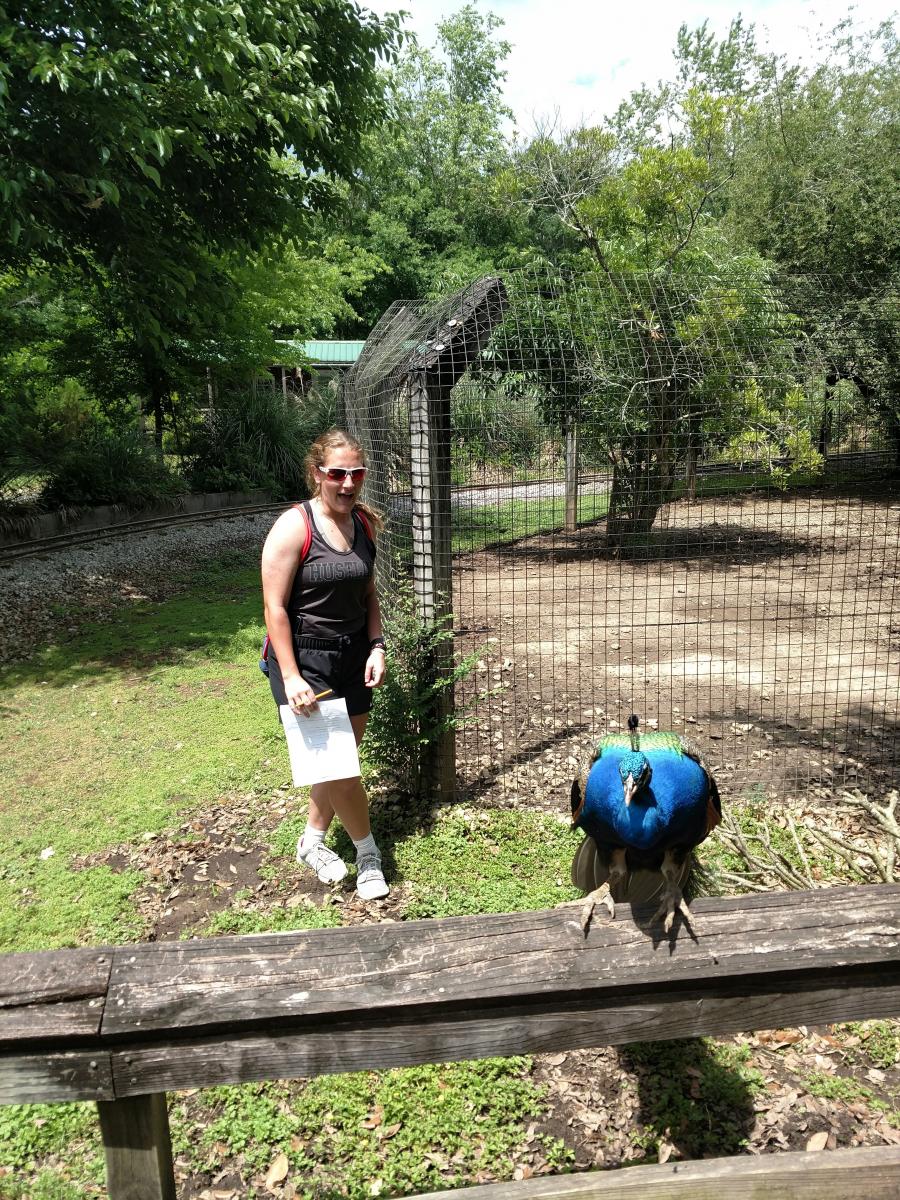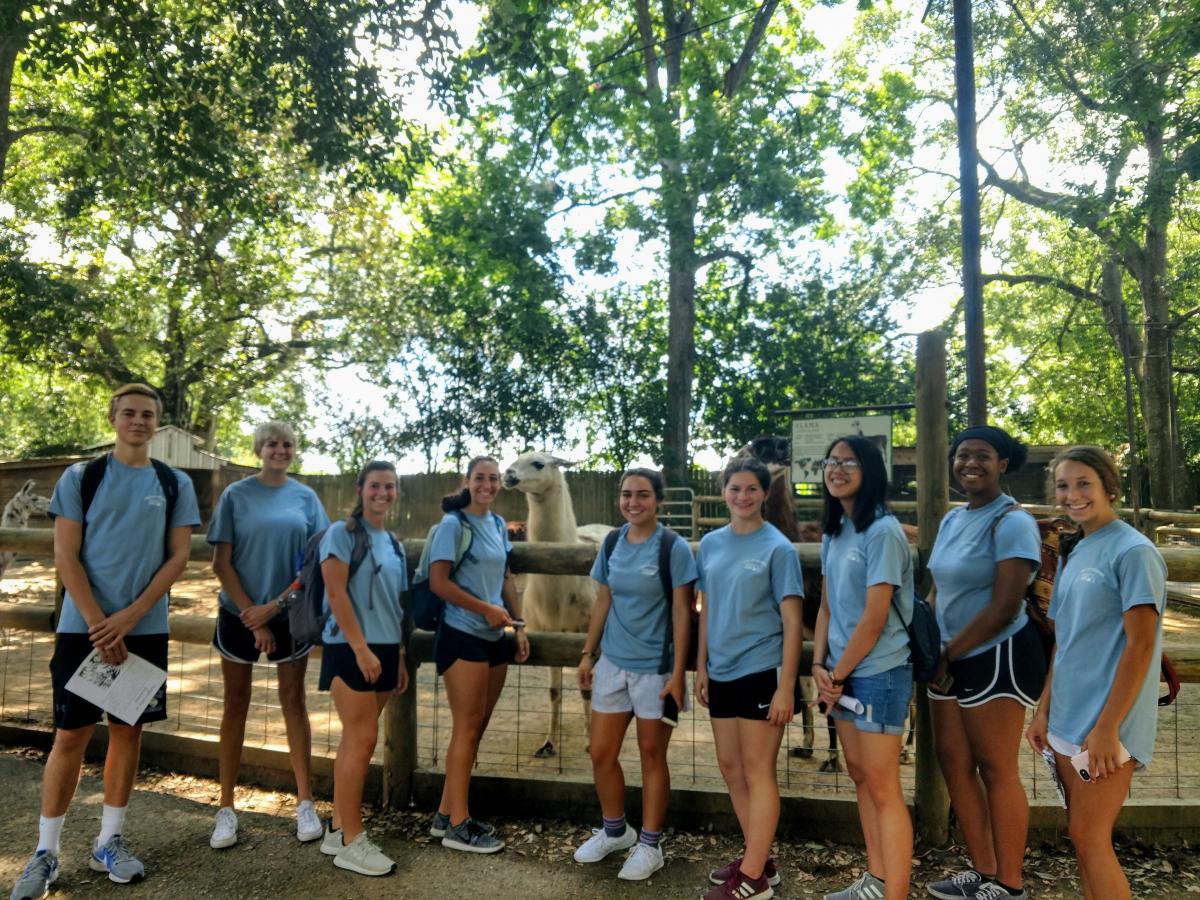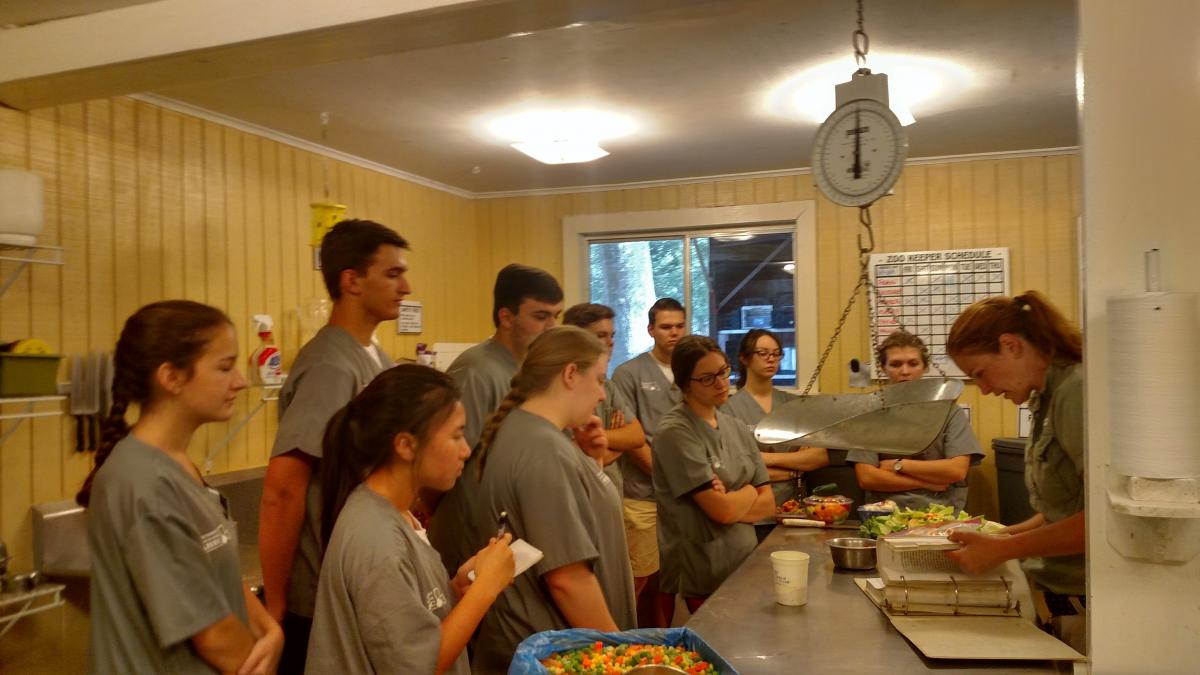When Blake Touchet, a biology teacher and NCSE Teacher Ambassador in Louisiana, learned that one of his students believed a peacock was a mythological creature akin to unicorns, he decided to take his class to the zoo.
When the student finally met a peacock face to face, she had to touch it to believe it was actually real. “Her face was priceless when she saw it for the first time,” remarks Touchet. By studying the evolutionary history of the animals in the zoo and learning about their dependencies on critical shrinking habitats around the world, the students of Touchet’s classes are experiencing firsthand what textbooks can only tell them.
Coinciding with the week of Earth Day, Touchet’s annual field trip offers students the chance to apply their learned lessons and connect the dots between classroom studies and real world issues. He believes that science should be tested and experienced by students, so is constantly encouraging them to get out of the classroom and apply what they've learned. “I can teach them more about plants in two days being outside than sitting in a classroom for two weeks,” Touchet says. But when the course shifts to animals and conservation, the outdoor spaces around the school aren't adequate. Between the lack of biodiversity on campus and misconceptions such as the one held by the student who believed peacocks to be a fairytale, Touchet knew — “I was like, ok, we’re definitely going to the zoo.”
Touchet is the only teacher in the area to teach this biology course, known as dual enrollment, which offers students a chance to receive college level credit as a high school senior. In this year long advanced class, they explore biology at a deeper level than the introductory courses offered in previous years. As the learning curve of Touchet’s course steepens, seeking out additional ways to reinforce specific concepts, and their bigger connection to the world, becomes challenging. “This field trip is a great way to prepare the students for their final exam, and reward them for making it through their first college level science class,” Touchet says of the trip.
A native to the Louisiana community in which he now teaches, Touchet can hardly recall when he first fell in love with science. “I grew up on a little farm ... so I’ve always been outside and loved learning,” he says. While Touchet’s memories of high school biology were rather grim — always sitting at a desk with a textbook and never once experimenting in a lab — an opportunity when he was an undergraduate student to help out with teaching a college level anatomy course ignited a desire to teach science. Determined to bring about positive change, Touchet returned to his hometown and introduced an alternative way to teach science. Textbooks are still used, but each of Touchet’s lesson plans include activities that encourage students to ask questions and apply concepts on their own.
As the only certified college-level instructor teaching high school in his district, Touchet travels to multiple schools each day bringing advanced biology coursework to eager students. And as there are limited opportunities for a dual-credit course like Touchet’s, his efforts are reciprocated by students — with many attending a school outside their neighborhood. “They impress me everyday, having the motivation to drive to a different school just to take a class.” Now in his ninth year as a science teacher, Touchet’s annual field trip to the zoo has become a notorious selling point for many students. “After the first year, I had kids asking me about doing it the next year, and it just took off from there,” he says.
Touchet’s spring semester focuses on evolution and taxonomy. And with the class’s final exam scheduled for early May, he uses the field trip as a way to engage students outside of the classroom via a scavenger hunt. Ranging from cladogram drawings of related animals to taking pictures of specific species, the scavenger hunt involves slightly different tasks and questions each year. Over time it has evolved to become more inclusive of the entire year’s studies, encouraging students to holistically understand the content and concepts of biology.
 Aside from seeing exotic and local species up close and completing a scavenger hunt, Touchet also works with the zookeepers to take students behind the scenes. In those moments, the benefit of letting local zookeepers re-teach concepts in a different light allows the students to absorb information in a new way. “It’s always good for them [the students] to hear it from other people … especially the conservation efforts inside and outside of the zoo.”
Aside from seeing exotic and local species up close and completing a scavenger hunt, Touchet also works with the zookeepers to take students behind the scenes. In those moments, the benefit of letting local zookeepers re-teach concepts in a different light allows the students to absorb information in a new way. “It’s always good for them [the students] to hear it from other people … especially the conservation efforts inside and outside of the zoo.”
While Touchet has already taught fundamental concepts related to Earth Day, such as the importance and interconnectedness of the planet's natural resources, the chance for students to hear these concepts from another perspective often helps solidify them. Students see first-hand the amount of work needed to conserve the habitats and species studied. By bridging the gap — between biological concepts taught in the classroom and real world applications — Touchet is empowering the next generation of science lovers and Earth Day enthusiasts alike.
